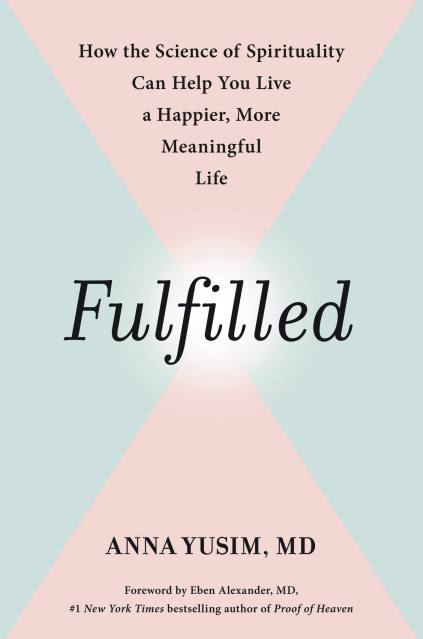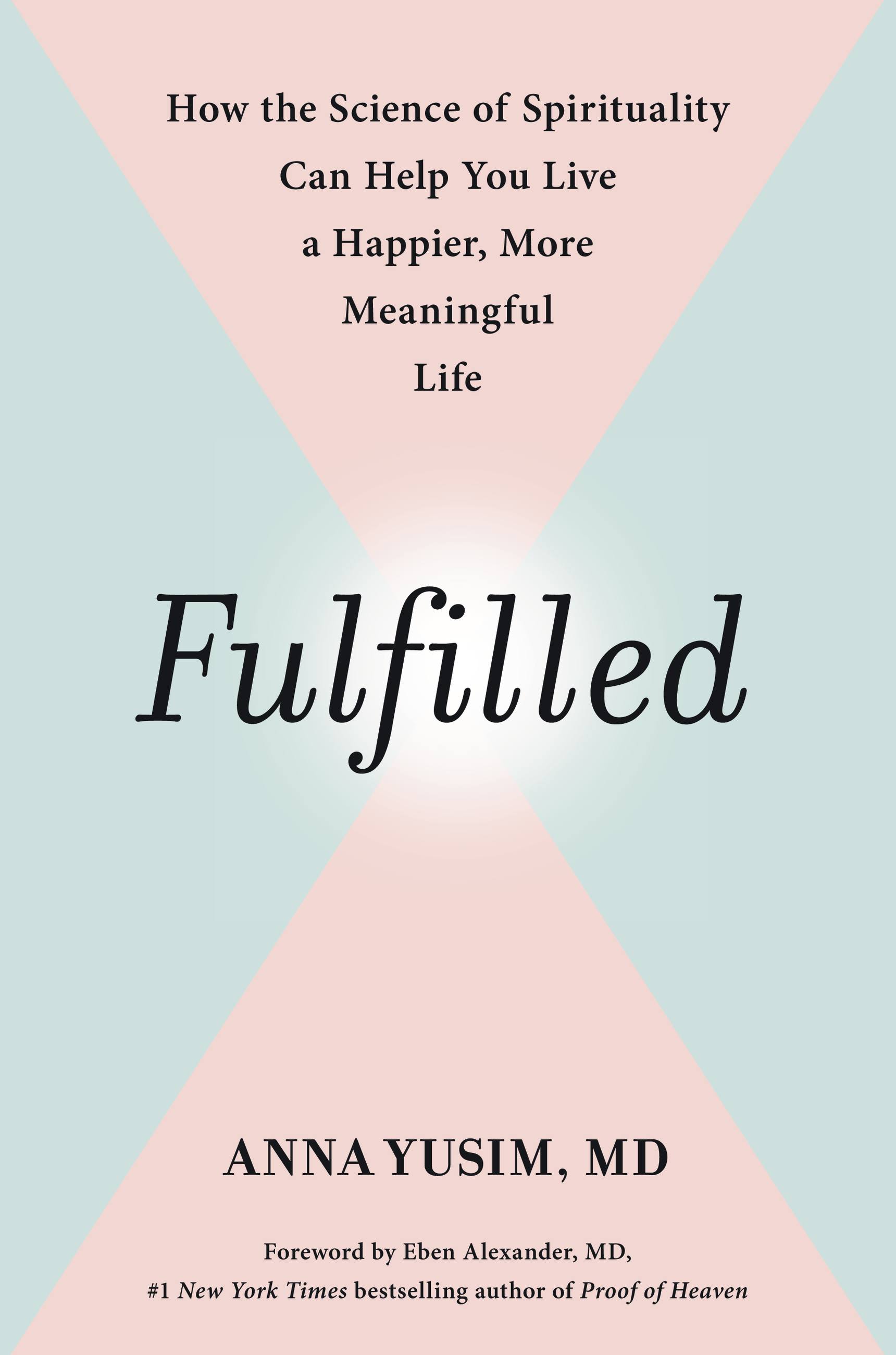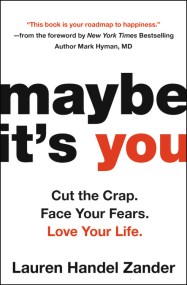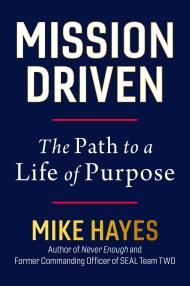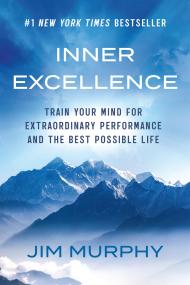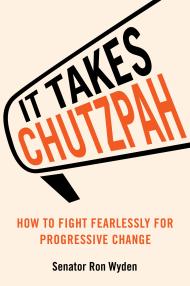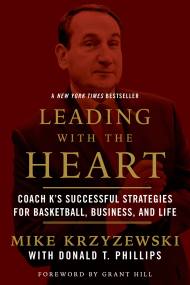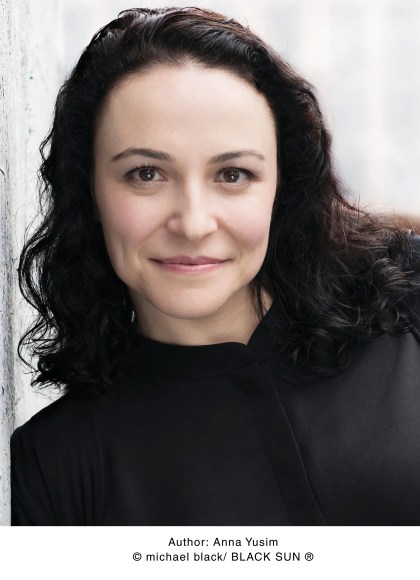By clicking “Accept,” you agree to the use of cookies and similar technologies on your device as set forth in our Cookie Policy and our Privacy Policy. Please note that certain cookies are essential for this website to function properly and do not require user consent to be deployed.
Fulfilled
How the Science of Spirituality Can Help You Live a Happier, More Meaningful Life
Contributors
Foreword by Eben Alexander, MD
Formats and Prices
- On Sale
- Jun 27, 2017
- Page Count
- 320 pages
- Publisher
- Grand Central Publishing
- ISBN-13
- 9781455596782
Price
$14.99Price
$19.99 CADFormat
Format:
- ebook $14.99 $19.99 CAD
- Hardcover $28.00 $35.00 CAD
- Audiobook Download (Unabridged)
This item is a preorder. Your payment method will be charged immediately, and the product is expected to ship on or around June 27, 2017. This date is subject to change due to shipping delays beyond our control.
Buy from Other Retailers:
Psychiatrist Anna Yusim knows just how you feel. Not only has she struggled with these feelings herself, but she has also worked with patients upon patients who have expressed the same bewildering concern: they have everything they’ve always wanted, and yet deep down they don’t feel fulfilled.
Determined to help herself and her patients, Dr. Yusim spent more than fifteen years studying and conducting research and came to a startling conclusion: this lingering feeling of dissatisfaction coincides with spiritual neglect. Once she helped her patients address their spiritual and psychological needs, she saw radical improvements in their happiness levels and quality of life.
Now science is catching up with her innovative approach to therapy as groundbreaking medical research and studies substantiate what Dr. Yusim and many others have suspected for years: spirituality is a powerful path to healing. Drawing from the best in Western medicine, as well as teachings from Kabbalah, Buddhism, and shamanistic traditions, Dr. Yusim has developed a program that marries empirical science and spirituality to help you:
Discover your life’s true purpose
Eliminate self-defeating patterns and roadblocks that are keeping you from living your most authentic life
Understand the scientific underpinnings behind “answered prayers” and “random coincidences”-and why having faith in them can change your outlook for the better
Appreciate how consciousness shapes your reality and how to harness this understanding to live a life of abundance.
Filled with exercises, guided meditations, fascinating scientific research, and inspiring success stories, Fulfilled integrates the best of Western medicine with universal spiritual principles to help you find more meaning, more joy, and more fulfillment in your life.
-
"If you want to understand how the science of spirituality can help you transform and heal, this is an important book to read."Deepak Chopra, author of You Are The Universe
-
"In FULFILLED, Dr. Anna Yusim clearly demonstrates her strong commitment to both her own patients and all who suffer from mental illness. Dr. Yusim's knowledge of clinical care, with emphasis on psychotherapeutic approaches, is both remarkable and fully up-to-date. FULFILLED is equally a jewel for the general public and those with knowledge of the field of psychiatry. I plan to keep a copy of her book close by in my office, and frequently consult it with respect to my own patients."Pedro Ruiz, MD, President, American Association for Dual Diagnosis; former president, American Psychiatric Association; former president, American Board of Psychiatry and Neurology; and former president, World Psychiatric Association
-
"More and more psychiatric professionals are recognizing the role of spirituality in treating anxiety and depression, part of a vital pushback against the overmedication of Americans. I admire those like Dr. Anna Yusim who are leading the charge."Marianne Williamson, New York Times bestselling author of A Return to Love
-
"Dr. Yusim has given therapists and clients wonderful spiritual tools to bring head and heart together as we journey within psychotherapy and outside the consulting room. She shows how intuition, intellect and innocence can take us to higher goals. Therapists can work on themselves. Clients can share what they discover in this book with their therapists. In these times of stress and disconnection, we need the spiritual dimension to go reunite with our authentic selves."Richard P. Brown, MD, Associate Clinical Professor in Psychiatry, Columbia University College of Physicians and Surgeons
-
"Dr. Yusim's book is refreshing. She is a psychiatrist who goes far beyond drugs to help us feel healthier, happier, and more empowered in whatever we do. Incorporating universal spiritual wisdom and the new worldview of quantum physics, she takes people out of the illusion of separateness and powerlessness into recognizing who and what they truly are and have the power to accomplish."Henry Grayson, PhD, founder, the National Institute for the Psychotherapies, founder, Synergetic Therapy Institute, author of Mindful Loving, The New Physics of Love audio series, and Your Power to Heal
-
"Rich with timeless wisdom, Fulfilled is a thoughtful and engaging manifesto on living an authentic, meaningful, and love-filled life. Dr. Anna Yusim writes with such depth of heart that you will feel as though you've made a new friend; one you can trust fully to guide you toward deeper dimensions of your own brilliance, calling, and . . . of course, fulfillment."Katherine Woodward Thomas, New York Times bestselling author of Calling in "The One" and Conscious Uncoupling
-
"Dr. Yusim's beautifully written book offers medicine for the soul as well as the body. By integrating Eastern and Western perspectives on healing with an understanding of higher consciousness, this book has the potential to transform the field of psychiatry."Thomas D. Stewart, MD, consultation-liaison psychiatrist at Yale New Haven Hospital, associate clinical professor, Yale University School of Medicine
-
"Fulfilled brings the mental health field's focus on self-understanding a much needed deeper looking into the human psyche: the dimensions of the spirit and the soul. Dr. Anna Yusim, a dear friend and student, provides invaluable insights, tools and exercises to help us heal and grow by accessing the spiritual dimensions of ourselves and the world."Rabbi Jonathan Feldman, PhD. Associate Director, Manhattan Jewish Experience
-
"Dr. Yusim's honesty, vast knowledge and experience come through in FULFILLED. The combination of intellectual and academic inquiry, spiritual curiosity and openness was so refreshing and compelling. I wanted to both race through it and to savor it. It is a stunning achievement, one that will help more people than she will ever know."Reverend Andrea Raynor, M.Div., United Methodist Minister; Hospice Spiritual Counselor, and author of numerous books, including The Choice.
-
"In her raw, real and beautiful style, psychiatrist Anna Yusim shows you how to remove life's masks of illusion! Greater authenticity opens the door to personal fulfillment. Demonstrating that, "true healing and lasting fulfillment require a spiritual transformation as well as a clinical outcome," Anna shares that what we see in this world is less than 1 percent of its true reality. FULFILLED pulls back the curtain revealing the other 99% for you!"Dr. Donny Epstein, developer of EPI-Energetic technologies, author of 12 Stages of Healing, Healing Myths Healing Magic, Network Spinal Analysis, and EPI Performance
-
"FULFILLED is a remarkable achievement for a doctor and writer. Yusim's day on earth is still young. Her trajectory seems unlimited. So, she asserts, can yours be - and she aims to help you get there."Psychology Today
Newsletter Signup
By clicking ‘Sign Up,’ I acknowledge that I have read and agree to Hachette Book Group’s Privacy Policy and Terms of Use
